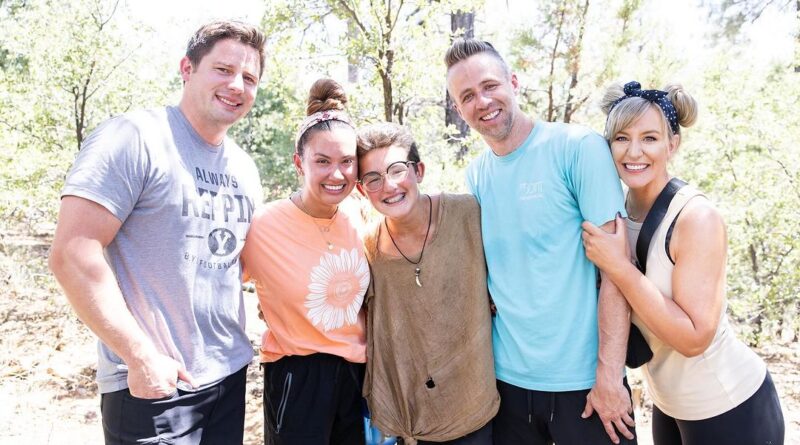Anasazi Therapy & Outdoor Behavioral Health Programs
Outdoor therapy programs provide insight into a different method of therapy by incorporating nature into the treatment process. For youth experiencing some form of emotional or behavioral disorder, this form of health care can help. It offers an environment in which they are shielded from modern-day interference. It gives the youth an opportunity to reconnect with themselves.
Such programs enable young people to engage in nature-related practices. The exercises promote self-reflection and personal growth. The wilderness setting takes away from the pressures of daily life. It encourages the participants to assess themselves. In this way, they can make positive changes in their behavioral patterns.
This is the case in the Anasazi Outdoor Behavioral Healthcare Program in Arizona. The teenagers are given a chance to undergo therapeutic activities while on a hiking and camping expedition. A teen wilderness therapy program is ideal for achieving individual change as well as development.
What are the Key Aspects of Wilderness Therapy Programs?
Wilderness therapy programs are intended for youth between the ages of twelve and seventeen. They are referred to as YoungWalkers in some cases. The program is for youth facing various problems, including substance abuse, mood swings, and behavior disorders. These programs are different from typical therapies. This is because instead of receiving treatment in an office, the participants can live a primitive existence. They have to build everything from scratch, including the food. However, they are under the supervision of very helpful caretakers.
In contrast to boot camps, outdoor therapy programs do not have to be forceful, manipulative, or abusive. Rather, the staff directly engages with the youth. The mentor assists them while helping them to learn essential values such as responsibility and accountability. Behavioral health programs basically entail the fostering of a careful and supportive atmosphere rather than applying forceful approaches. The force would only prove unhelpful for youths who are in need of support.
An example of such a program is Anasazi Therapy. It aims at restoring a person’s control over their life. Young participants go for a walk in the woods, where they encounter both outdoor and individual problems. It allows them to analyze their own emotional and behavioral processes. During this process, experienced staff support the youth. They help the young minds to work through the issues that brought them to the program.
Parent Involvement in Behavioral Health Programs
A number of studies have found that parental engagement is critical in making teen wilderness therapy programs work. These programs ensure that families are actively involved in the treatment process. These programs feature weekly counseling sessions with family therapists. Moreover, it includes parent shadowing activities, which help to reconstruct the family structure. It is centered on the teen as well as their family. It shows how the family can foster positive changes in the long run.
It is common for parents to accompany their children in these types of activities, and they may attend workshops to have an insight into what their child is going through in the wilderness. Furthermore, at the final stages of the program, parents can come to the trail and spend several days there with their child. All of this prepares the child for a new relationship with their parent, restores their trust, and strengthens the positive changes that have taken place in the course of outdoor therapy activities.
What is the Long-Term Impact of Outdoor Behavioral Health Programs?
Outdoor behavioral health programs effectively address different issues. This includes mood disorders, substance abuse, and behavioral problems. Such programs enable teenagers to temporarily escape social life. Moreover, the youth face the challenges presented by nature. This helps them to develop resilience and gain a sense of responsibility.
With the help of licensed counselors and therapists and the authoritarian environment of the wilderness, participants mastered effective coping skills that they could use even after the program. The experience of getting through the forest, with its unexpected obstacles, is a perfect illustration of one’s daily struggle. Thus, through conquering these challenges, teens acquire purpose and self-esteem.
People benefit from wilderness therapy activities in various ways. Additionally, the impact extends beyond those in the program. Parents actively participate throughout the process. They learn strategies to support their child’s growth. This holistic approach ensures that the progress made during the program can be maintained at home, providing a solid foundation for lasting change.
Conclusion
Outdoor therapy programs offer a refreshing alternative to traditional therapeutic methods, particularly for teens dealing with emotional, behavioral, or substance abuse challenges. These programs focus on helping participants reconnect with themselves in the wilderness. By incorporating family involvement and guiding young individuals through their personal journeys, behavioral health programs offer long-term solutions for both the participant and their families. With the support of licensed professionals and the healing power of nature, teens emerge from these programs with a renewed sense of purpose and healthier coping mechanisms.

